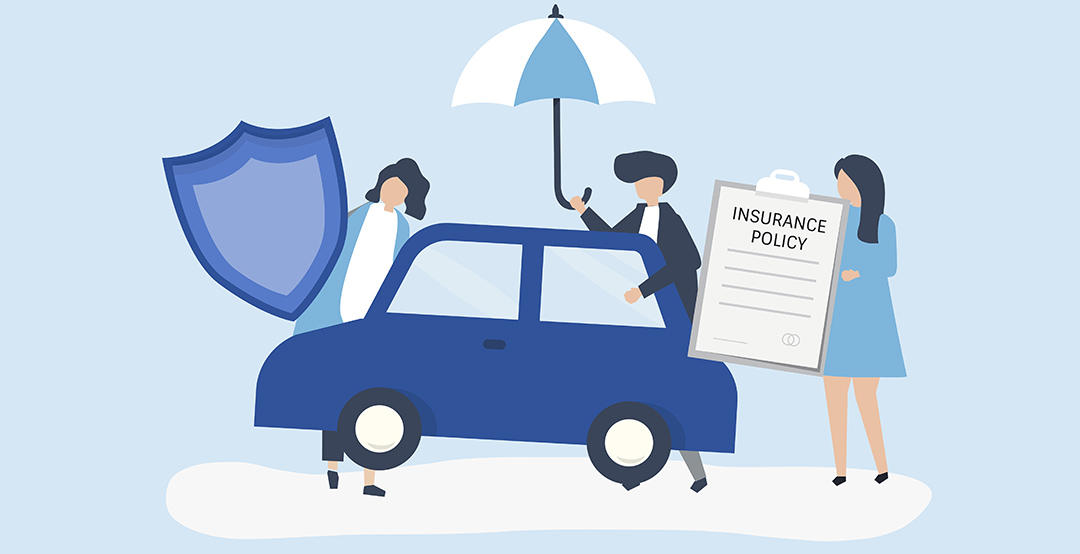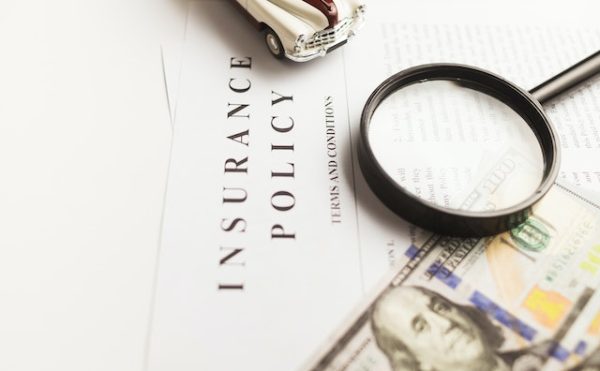Cars are the most used vehicles because they support work transportation. It’s best if you buy car insurance as protection. You don’t have to worry about spending a lot of money when your car needs repairs because you can claim with excess that you pay. What does excess mean in car insurance?
You should pay more attention to your car, especially if the value of the car is fantastic. Even though you are careful when driving, you still have the potential for an accident due to other drivers or other natural factors.
Therefore, protect your car by buying car insurance for it. Keep reading the following article if you want to get holistic information about excess car insurance.
What Does Excess Mean in Car Insurance?
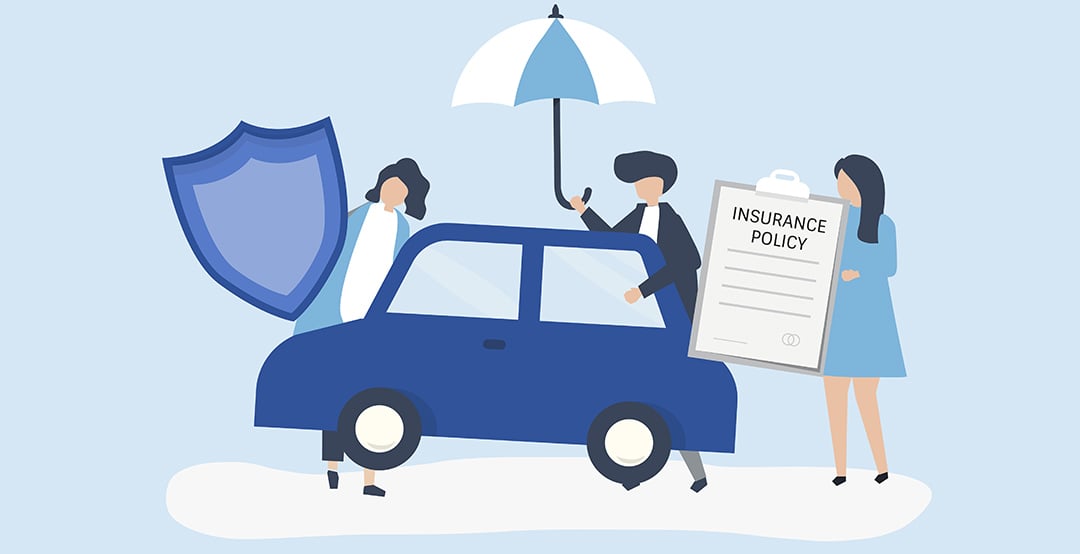
When purchasing a car insurance product, the insurance provider will ask you to pay for the excess. You can use your excess to pay for car repairs due to an accident. These types of car accidents are usually described at purchase.
Simply put, you choose a standard excess of $500 and claim $1,500 worth of car repairs. That means you only need to pay $500, while the remaining $1,000 the insurance company will pay for it. If your car is written off, your excess will be deducted. The deduction comes from the last claim payment that you received.
It is important for you to know that claims for your excess can only be made when other people driving your car are included in the insurance policy.
Even though the accident was caused by another person, if the person driving the car is a policyholder, the insurance company will cover it. With this kind of coverage, of course, you will feel more at ease if something unwanted happens. You won’t have to worry about the cost of car repairs.
What are The Types of Excess in Car Insurance?
There are three types of excess in car insurance that you can find out about. Knowing the types of excess is very important because you can choose according to your abilities and needs. Let’s check the following explanation:
1. Voluntary Excess
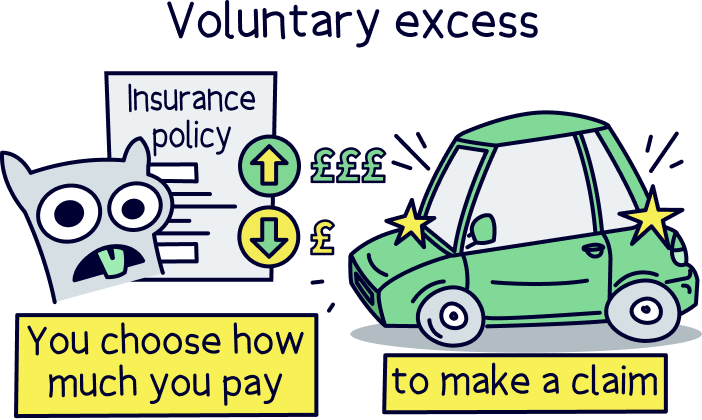
If you claim your car insurance and are willing to pay a certain amount of money, this is called voluntary excess. In voluntary excess, you are the party who determines the amount of payment. This determination perk according to your ability is a great choice so as not to burden you later.
Overall premiums can decrease when you buy car insurance if you increase the number of voluntary access payments. Keep that in mind, you should not force an increase in the amount of voluntary excess payments if you cannot afford it.
The reason is that the insurance company will handle your claim if you have already paid for the compulsory excess and voluntary excess. Therefore, you can also consider choosing the amount of voluntary excess that is affordable and in accordance with your financial capabilities.
Voluntary excess fees usually have a minimum amount, so you have to know that minimum amount. Thus, you will not determine the voluntary excess costs under the claim basis.
In addition, you also need to consider the estimated minimum repairs if the car has an accident. Examples of such minimal damage include damage to the rearview mirror, scratched car body, broken windshield, and many others.
2. Compulsory Excess
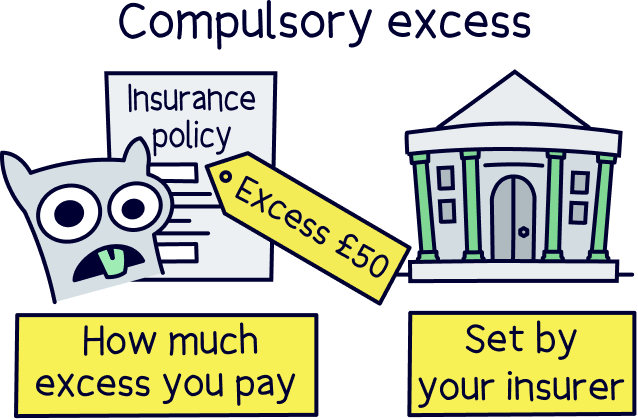
To give a clear understanding of what does excess mean in car insurance, then you need to know the compulsory excess. This type of excess is the opposite of voluntary excess because you have to pay a predetermined amount of fees when making your car insurance claim.
The insurance provider is the party that determines the amount of the excess fee. In addition, the amount of compulsory excess for each policyholder may vary because there are many factors that affect it. The factors referred to include the type or brand of car you drive, how long you drive, and your age.
Usually, insurance companies will set a higher compulsory excess for young drivers or those who are new to driving. The underlying reason is that people who are new to driving or young drivers have a higher risk when driving.
Meanwhile, experienced drivers will get lower compulsory fees. This is due to the lower risk of having an accident.
There are two options in claiming compulsory excess that you can do, namely “fault” and “no-fault”. You will not get your money-back claim and will have to pay excess fees if you make a fault claim since the insurance company can no longer recover your claim.
If you make a non-fault, then you can reclaim it. However, you still have to pay other costs and excess. Your insurance company will pay all costs incurred to other insurance companies, that’s how no-fault works. Usually, the total excess costs are not returned to you if the car accident occurs because of your fault.
3. Total Excess

To complete your knowledge about what does excess mean in car insurance, the third type of excess is total excess. It is called total excess because it is a combination of voluntary excess and compulsory excess.
You must pay the total excess as long as your policy is still active and you make a claim. Therefore, you must understand carefully before determining excess in car insurance.
If the insurance company offers a very high excess and exceeds your ability, it would be better if you consider voluntary excess. It will be easier for you to manage the amount of voluntary excess so it doesn’t burden your financial health.
Remember, the lower the amount of excess you set, the more expensive the overall premium you have to pay. You can consider some of the following insurance companies for your car protection.
- ACA Auto Insurance
- Allianz Auto Insurance
- Garda Oto Auto Insurance
- AXA Auto Insurance
- Adira Autocillin Insurance
Does the Discussion of Excess on Car Insurance Help You?
Excess on car insurance is the cost that you pay every time you make a claim if your car has an accident. In addition, you are also still required to pay a monthly premium. There are three types of excess, namely voluntary excess, compulsory excess, and total excess which you can choose according to conditions and financial capabilities.Choose wisely to be more efficient! Hopefully, the article concerning what does excess mean in car insurance can help you get a clear understanding.
Bagikan


